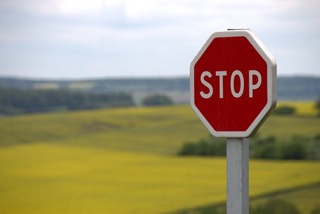The difference pausing to STOP can make

In our fast-paced lives it is common to be on autopilot and not fully present to what we are saying or doing. When we use the “STOP” Key to Mindfulness, each letter helps us create a meaningful pause – a breathing space – before acting. STOP allows us to respond, rather than react to what is happening.
It also invites us to tune in to our experience in the moment, both within us, and around us. This helps us to see what is true, and allow our wisdom and compassion to guide our actions or speech.
A young mother living in shelter who participated in SHINE recounted her story of how STOP changed her habitual response to her baby. One evening her young child was screaming in his crib. She said, “I was going to go in and pop him so he would shut up. Then I remembered what I learned last week in SHINE – to STOP. So, I stopped walking, then took a breath. I opened to what was going on inside of me, and could feel my heart pounding and see my fists all tight. Then I looked at my baby and I realized — maybe he needs something from me. So I didn’t hit my baby, and they didn’t need to call Child Protective Services. I went and asked for help instead.”
Here’s how to make STOP work for you:
 S = STOP. Literally stop what you are doing.
S = STOP. Literally stop what you are doing.
T = Take a breath. Feel the sensation of the breath coming and going. Bring kind and curious attention to what you are noticing, and focus on it. Perhaps take a second breath!
O = Open and Observe. Notice what is going on inside your body. Tune into your thoughts, feelings, and sensations. Then observe what is happening around you.
P = Proceed. Now that you have paused and opened a space for calm reflection and observation, choose how you want to proceed.
Any time you think of STOP is a great time to practice it. Next time you feel provoked by someone’s words or actions, use STOP as a way to check in before reacting automatically. It can also really help when you are feeling scattered, anxious or stuck in indecision.
Elisha Goldstein talks about the STOP practice in his wonderful book, The Now Effect: How a Mindful Moment Can Change the Rest of Your Life. He teaches us that the way we pay attention to our moment-to-moment experiences can change our brains and our lives for the better. And then he shows us how to do it!
Perhaps there are particular people you interact with regularly, specific situations in life, or times in your daily routine where the STOP key might serve you well. When, where or with whom? Choose one and practice to see for yourself the difference it makes!
To what one breath can do,
![]()
